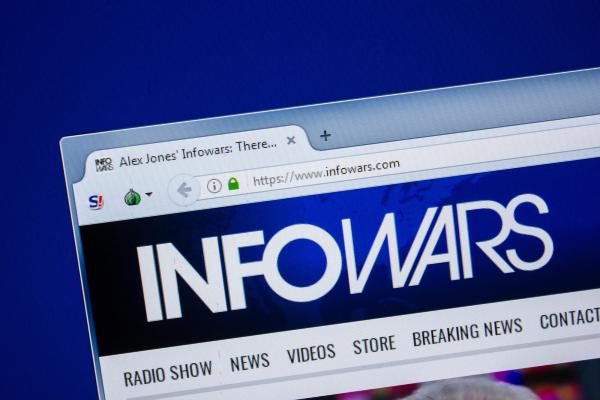FOR 20 YEARS, Alex Jones, a radio show host and founder of the Infowars website, has been spreading one off-the-wall conspiracy theory after another, and, for the past decade, social media have amplified his voice and his reach to a level his predecessors on the “paranoid Right” could never have imagined. In early August, Facebook and Google-owned YouTube finally took measures to effectively ban Jones from their platforms. But the way they did it raises more questions than it answers about the possibility of restoring respect for truth to public life in the United States.
Way back in the dying days of the 20th century, Alex Jones started his career ranting about the old conspiracy standbys, such as fluoride in our drinking water. But then 9/11 happened, and Jones took his act to a whole new level, claiming that the attacks on the World Trade Center and the Pentagon were really “inside jobs” unleashed by the secret government to launch a global war and suspend civil liberties.
In days gone by, such a theory would have been passed around on mimeographed fliers, and mainstream journalism, shackled by considerations of fact, wouldn’t have touched it. But the social media era has freed us from all that. Now anybody can say anything, and everybody can hear it. Suddenly Alex Jones had an audience of millions for his Facebook pages, his YouTube channel, and his website; this success seemed to egg him on to ever more outrageous pronouncements. Finally, he hit rock bottom with the claim that the Sandy Hook school shooting was faked (to provide a pretext for seizing Americans’ guns) and all those grieving parents were only acting.
Read the Full Article

